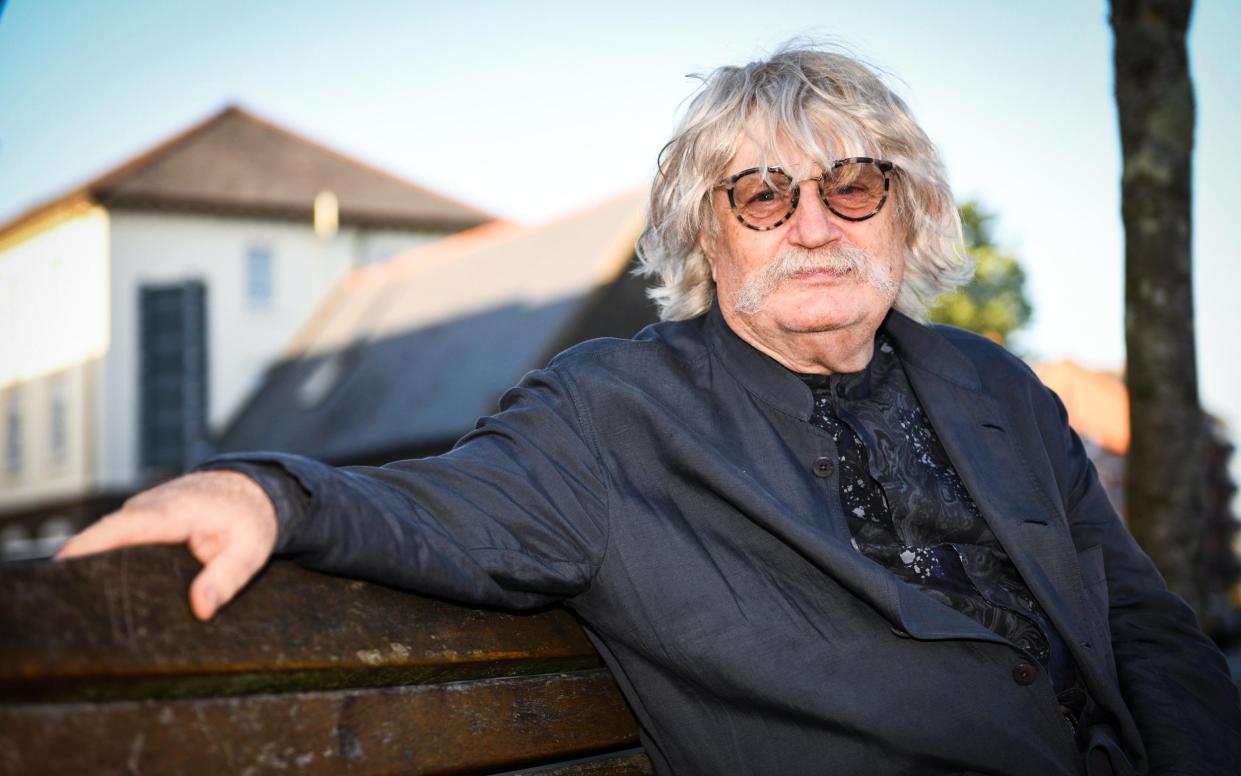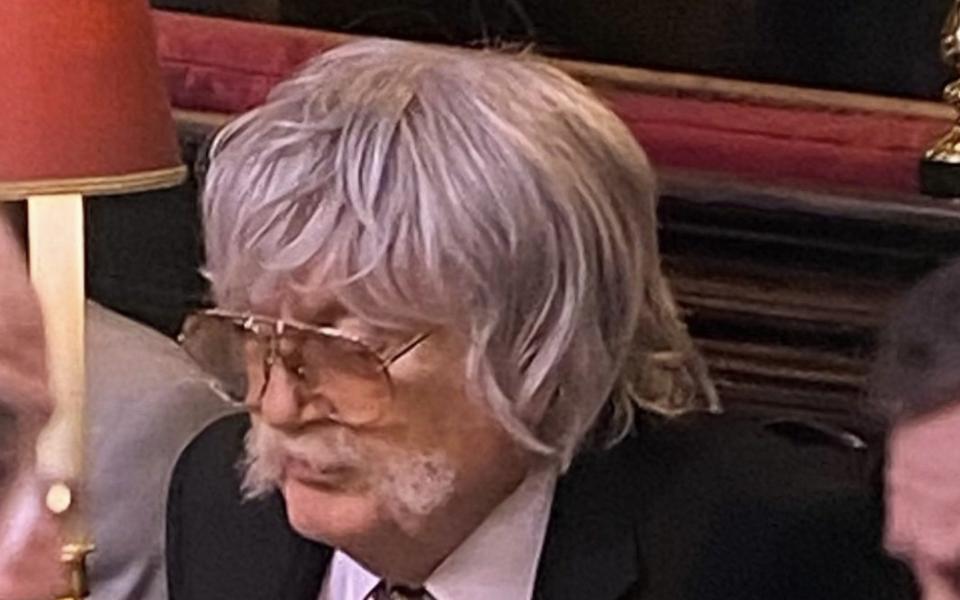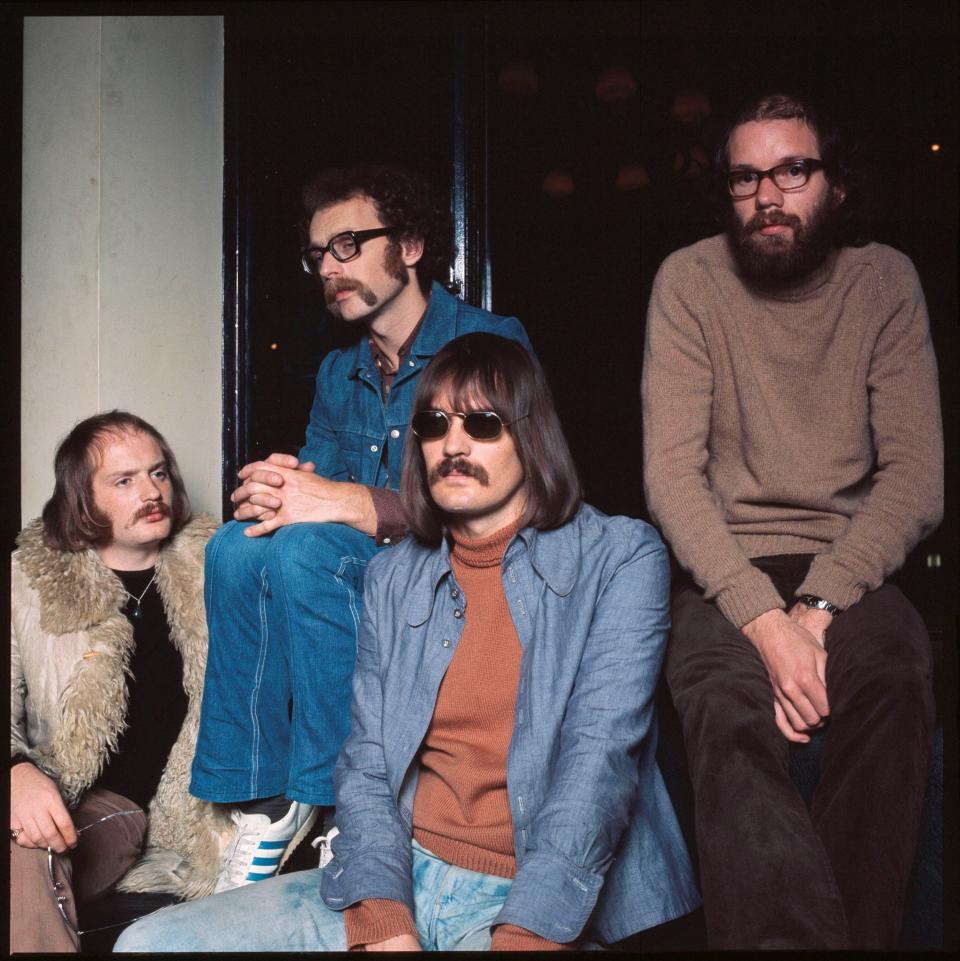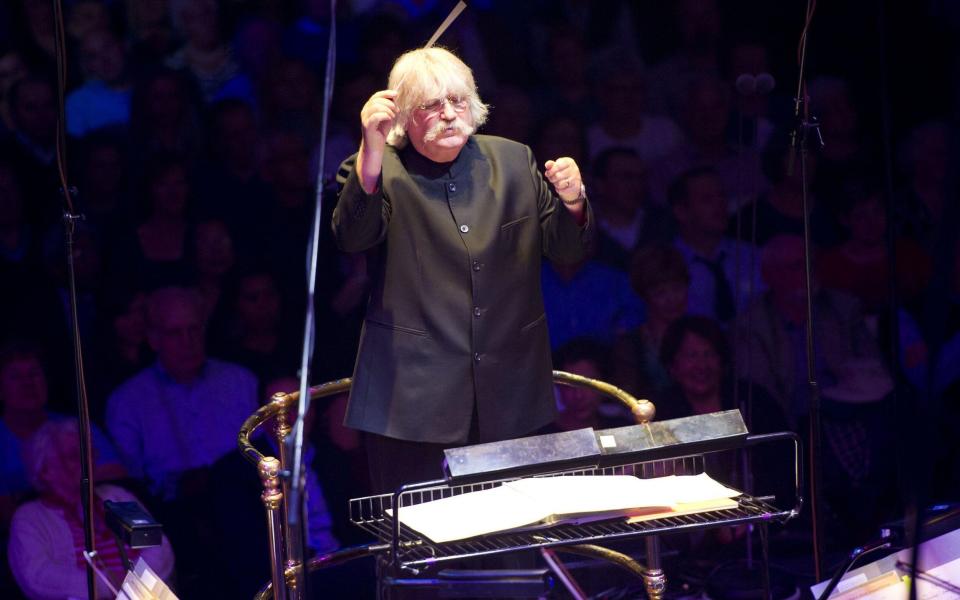Sir Karl Jenkins on being mistaken for Meghan: ‘People were buying me drinks in the pub’

“Sacred music for secular people,” is how Karl Jenkins describes the work that has made him Britain’s most successful contemporary classical composer. Older readers will know him as the Welsh wizard behind Adiemus – the soaring choral anthem that grew out of a short piece he wrote for a Delta Airlines commercial back in 1994. Five million younger TikTok users will know him as the moustachioed man memed as “Meghan Markle in Disguise” when he attended King Charles’ Coronation last year.
To be fair, Jenkins’ helmet of white hair, huge tinted specs and wide retro tache do resemble comedy camouflage.
And when I meet him in London the week before his 80th birthday, he tells me he definitely sees the funny side of what he calls his “Meghan moment”.
“People were stopping me in the street, asking for photos, buying me drinks in the pub,” he shakes his head with a dry chuckle.
He’d been invited to the Coronation because his delicate harp fantasia – Tros y Garreg (Welsh for “Crossing the Stone”) – was performed there as a nod to the incoming King’s Welsh ties. “That was amazing, really,” he tells me. “I don’t want to sound pompous, but being included with all the pageantry made me feel like a part of history.” But his experience of the service wasn’t an unalloyed pleasure. “The Tory front bench kept talking. And the DUP leader [Sir Jeffrey Donaldson] on my left didn’t stop talking. I said: ‘Excuse me but my piece is coming up, would you mind being quiet?’” Jenkins tuts, but assures me that Donaldson did pipe down.

This anecdote is a rare moment of pride, in an interview during which the phlegmatic composer repeatedly downplays his achievements. When I ask about his 1970s work with pioneering avant garde jazz-rock band Soft Machine, Jenkins shrugs that they were “all right”. Meanwhile, playing on Mike Oldfield’s seminal prog rock album Tubular Bells live for the BBC in 1973 was “another gig, really”.
Although fans of his popular classics, such as 1999’s The Armed Man: Mass for Peace, say his music gives them shivers, he says: “I’m never moved by my own music. That would take enormous ego. I’ve never had goose pimples, like I do when I’m listening to Mahler.”
Perhaps it’s defensive. The snootier classical critics have pointed to Jenkins’s background in advertising music. They haven’t liked the way he uses elements of world music and rock production, and enlivens orchestras with big percussive pulses. “One critic called my music ‘emotionally manipulative’,” he winces today. “But isn’t all music? All tonal music, at least, is probably written to make you feel something. I grew up listening to my father’s vinyl recordings of Bach, Beethoven, Wagner, Strauss, Debussy, Stravinsky: it was all emotional…”
Born in Wales in 1944, Jenkins is the son of a music teacher. Although his mother died of tuberculosis when he was five, he recalls a happy childhood. “After she died, we moved in with my father’s widowed mother and his widowed sister, so there were still women around,” he says. He started out learning the piano but soon moved on to his father’s favourite instrument – the oboe – which he still cherishes for its “plaintive, yearning sound”.
I’ve wondered if the wilder waves of Jenkins’ more elemental music were inspired by the dramatic coastline of the Gower Peninsula where he was raised. He tells me that his grandmother was “drowned by a freak tide, when she was cockle picking, in the 1930s”. But he suspects his own music – often composed for choirs – owes more to “the rough, raw sound of Welsh chapel singing”. It’s the communal act of music that has always excited him: “playing the piano was isolated,” he says, “but playing the oboe in orchestras was better.” He started locally and graduated to the National Youth Orchestra of Wales.
“Back then it was all boys, though,” he says, as we reflect on reports of sexism in the classical world. “I can only remember seeing one girl, she played the trumpet. Gradually you started to see women in the string section and then the woodwind – and rightly so. My wife is a composer, you know. There should be no sexism, no barriers in music.”

Studying music at Cardiff University, Jenkins chafed against the atonal sounds popular with contemporary composers. “Creaky gate music, we called it,” he says. After lectures, he and his friends escaped into the tonal world of “seedy jazz clubs around Tiger Bay”. He grew his moustache at 18, trying to look like a jazz musician, and enjoyed the polo-necks, the late nights, drinks and cigarettes – “there’s a little hole in the bottom of a saxophone where you can put a cigarette”, he confides.
Jenkins joined Soft Machine after the departure of founder member Robert Wyatt in 1971, but won’t be drawn on whether there was much of a hipster lifestyle. Or how fractious relations became. I can’t work out if he’s bored of talking about the band or protecting the other members by keeping shtum. The heavy-drinking Wyatt went on to form his own band, Matching Mole (a pun on the words “Soft Machine” translated into French), then fell from a balcony and became paralysed from the waist down. “Somebody said he was in a room with a girl and tried to go out of the window,” says Jenkins. “I don’t know. Anyway, we disbanded by the mid-1970s, there was no farewell tour, we just stopped.”
By then, Jenkins was married and wanted a steady income. With Soft Machine’s Mike Ratledge, he started to work as a composer for hire. “Mike’s girlfriend was a hand and foot model,” he says, “She introduced us to people in the commercial world.” They began winning awards, and sold jeans and diamonds. Is there anything he wouldn’t sell? “Cigarettes,” he says, having quit in his 30s. “And Paddy Power wanted to use Adiemus to promote gambling once. I turned them down.”

Although Adiemus was written for a commercial, Jenkins realised it had a life of its own and released it on an album that sold three million copies around the world. The Japanese called it “healing music”. As a man who identifies “more as spiritual than religious”, Jenkins wanted to make a sound recreating the soulful buoyancy of the Welsh chapel, without the dogma. “The words were a made-up language,” he explains. “Like scat singing. I wanted the choir to sing without European vibrato. To shout as they sang, like children do. To sound like they came from around the world.”
What Jenkins describes as his “ethnic influences” have led to occasional accusations of cultural appropriation, which annoy him. “I remember the campaign against Steve Reich,” he says, “When he was accused of stealing rhythms from West Africa,” he sighs. “It’s a silly thing because rhythm is an abstract concept. Should Eric Clapton be told not to play the blues because it’s black music? Should black musicians not play the saxophone because it was invented in white Belgium?”
Jenkins recently celebrated his 80th birthday by going to France with his wife Carol, son Jody (also a composer) and, next month, embarks on a world tour where he will conduct a selection of his most popular works. “I don’t feel old,” he tells me. “I’m young in my head and maybe music helps with that. In my 60s I did get quite down, depressed, as I approached 70. But once I passed that milestone everything got better, even if I don’t feel any wiser!”
Karl Jenkins’s 80th Birthday Concert is at the Royal Albert Hall on March 10. Tickets: royalalberthall.com. For information on the world tour, visit karljenkins.com


